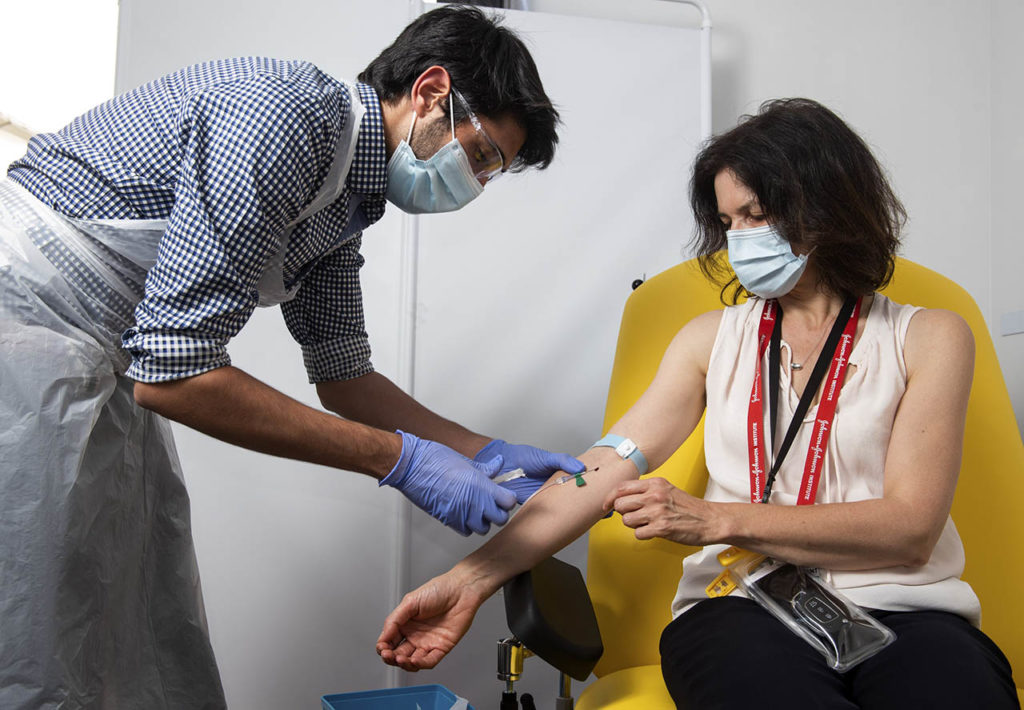Oxford University in the United Kingdom is currently developing the COVID-19 vaccine, and it turns out that antibodies have been created to protect the virus from all those vaccinated.
Inject the COVID-19 gene into a virus that acts as a harmless carrier for the human body. When the virus comes into contact with fibrous tissue just below the skin, the COVID-19 gene induces an immune response.
The world’s largest clinical results of the COVID-19 vaccine, developed by Oxford University and tested by multinational pharmaceutical company AstraZeneca, have been released.
The administration of 1,077 participants aged 15 to 85 found 91 percent of them a month after the first inoculation, and 10 of them had the second inoculation, and all of them had virus-defensive antibodies.
The amount of antibody was similar to that of the convalescent COVID-19. Not only antibodies but also immunologically competent cells that can respond immediately to viruses are 100 percent activated.
There were no serious side effects, but headaches and fatigue appeared in many people. The International Vaccine Institute said it was confirmed to be effective and low-risk, but said it was concerned about supply.
The pharmaceutical company is expected to produce 2.1 billion doses by the end of this year, with 800 million doses to Britain, the United States, and the four European Union countries that participated in the clinical trials, and 1.3 billion doses to middle-and low-income countries.
A domestic pharmaceutical company has signed an agreement to join production today (21st of July), but we need a strategy to secure domestic supplies.
Vaccination is expected as early as next year.
